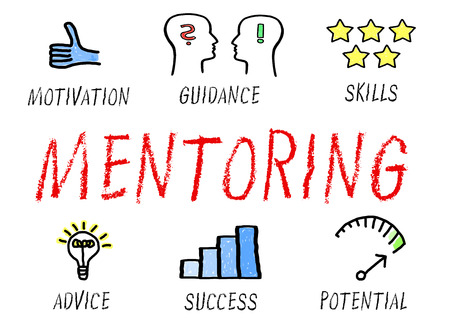One of the most common (and vexing) experiences for any parent with a young child is when the child asks why…incessantly. And while just thinking about this type of scenario can bring on an eye twitch, it actually provides a great example of how children embrace a wonderful curiosity for and openness to learning—something people seem to outgrow as they age. As adults, we can easily emulate that curiosity to drive deeper learning in mentoring relationships, as well.
Establishing a Baseline for Deeper Learning and Curiosity Randy Emelo wrote about this in Chief Learning Officer magazine in an article titled “Ask Me Anything: The Power of Questions in Learning” (August 2016). If we want to develop more inquisitive and innovative learners in our companies, we have to start by fostering their curiosity and encouraging them to engage in conversations that ask deeper questions and probe below the surface. This is critical within mentoring relationships, which often rely on the dialogue and advice given between mentees and mentors for the core of their activity.

Mentors are uniquely positioned to help mentees by asking questions and having the mentees ask questions in return. For example, understanding why an idea failed or why a hypothesis proved true can help a mentee address a similar situation in the future, which is more useful than just having a mentor give the mentee an answer.
If we just give people the answer, what happens the next time a similar problem comes up? How will the person solve the problem that time? They need to gain the skills to ask questions and solve problems on their own so that they can understand the factors at play and adapt to different scenarios in the future.
Applying Question-Asking Techniques for Learning in Mentoring
Mentoring relationships provide a wonderful environment for learning by asking questions. People can bounce ideas off of one another, share their experiences, add context and clarity to opaque topics, and more. I often describe the art of asking questions as an iceberg. Answers sit above the surface and account for the little bit of the iceberg that people can see, but underneath the surface is where the bulk of the iceberg (i.e., additional insights and skills) sits. Questions drive thinking below the surface and into the biggest part of the iceberg where people gain a more complex understanding of the topic or issue at hand. To help you get started with driving your thinking and learning practices deeper, here are some questions you and your mentoring participants can use for various topics:
- What are the interrelationships between elements in [fill in the blank with the topic or area being discussed]?
- What are the core assumptions that make up this practice area?
- What are some of the critical implications of applying principles related to this topic?
- What are the various points of view that come into play?
- What are some of the core areas of logic or reason that support this practice or thought area?
- How relevant are these concepts?
- How much consistency, accuracy, and precision can be gained from deploying this practice?
By asking questions such as these, people can begin to move beyond just remembering something they’ve already done or gaining new levels of understanding about a topic. Instead, they can begin to apply new understandings in a practical way, analyze the impact of that application, evaluate the larger implications of the application and analyses that occurred, and create new processes or practices as a result.

Another Mentoring Question to Ask: Is This Working?
These questions will drive your mentees and mentors to higher levels of thinking, a skill that they will be able to transfer to all areas of their daily work activities. And at the end of the day, having a highly intelligent, adaptable, inquisitive, and innovative workforce is what will push us forward to our next great invention, idea, or service.
That begs the question, though. Do you know what your mentees and mentors need right now? Have you measured the qualitative and quantitative impact of mentoring on mentees, mentors, and your organization? If not, now’s the time. Contact us today to learn more about how MentorcliQ’s mentoring software empowers both matching, engagement, and data collection of mentoring programs to create hard and data-backed evidence of success.




